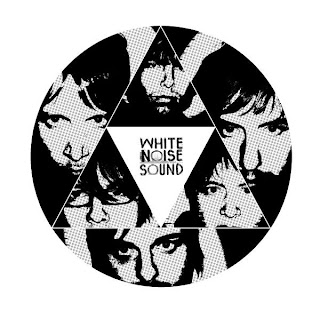 (self-released, 2011)
(self-released, 2011)Things seem to be going pretty well for Shattered Dreams; they’ve already played the O2 and the Regal, they’ve recorded with local legend Rich Haines and seem to come fully endorsed by Nightshift who recently awarded them the coveted Demo of the Month honour. Which makes us wonder: what has everyone else been listening to?
Everything about Shattered Dreams seems to be a preset; from the band’s logo (which looks like it was created using some kind of Myspace band logo generator) to the song names (“Round and Round”, “Live and Learn”). Everything is safe, generic and ultimately anonymous.
And unfortunately the same can be said of their music. Their recent Nightshift review suggested that they were the antithesis of what “some Disney executive’s idea of what grunge should sound like.” It’s actually quite the contrary – they sound like the aforementioned exec combined the elements of every pop-punk band that managed to crack the Billboard Hot 100 in the last three years and threw them together with a lashing of glue hoping that the resulting pile would resemble a cohesive, viable band. But where the Disney exec might have had the good sense to create hits with repeatable lyrics, hooks and infectious vocal melodies, Shattered Dreams can only offer us a pedestrian, haphazard assembly of chords and an uninspired delivery.
“Unparalleled” contains a few noteworthy drum fills and a guitar lead that is noteworthy only for its absurdity. Likewise the solo in “Song 109” is a free-roaming, uninhibited affair, the prospect of which would sound appealing if it were coming from the likes of Neil Young or John Frusciante, but the reality of which is cringe-worthy and illustrative of a lack of musical understanding. Scales be-damned!
“Live and Learn” is the diamond in the rough, relatively speaking. Here singer Steph spreads her wings and chooses to wander, albeit at arm’s length, from the guitar’s melody for a spell. And to be fair the song is quite pretty and nicely put-together in places. Musically the song sounds a bit like when bands like Green Day and Blink-182 get a mellow-on; it sounds similar to the latter’s “Adam’s Song.” The arpeggiated electric and acoustic guitars compliment each other nicely. The song is genuinely a breath of fresh air. And then we are dragged back down into the putrid swamp.
Throughout this EP the chord progressions are so recycled, so clumsy and predictable that the results go beyond being amusing and instead become a depressing series of death-dirges for the pop-punk era. It’s horrible to have to shit on a band for their musical limitations, but it’s also horrible to have to listen to Shattered Dreams for any prolonged period of time.
[Originally published on Musicinoxford.co.uk, 31/05/2011]
http://www.musicinoxford.co.uk/2011/05/31/shattered-dreams-lessons-through-living-ep-self-released/













